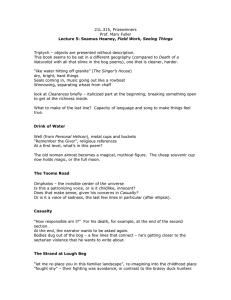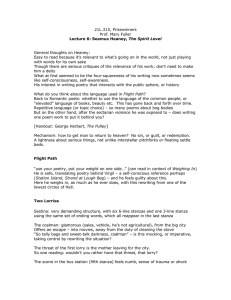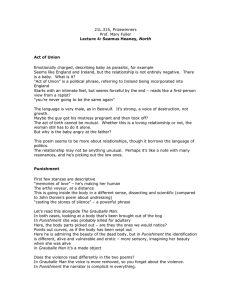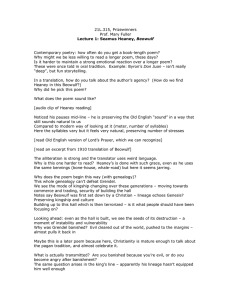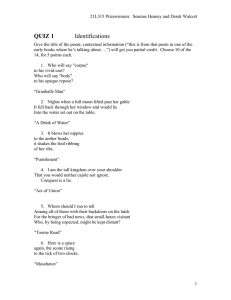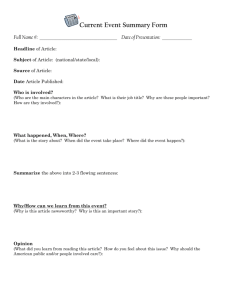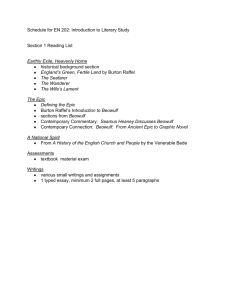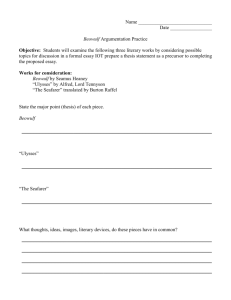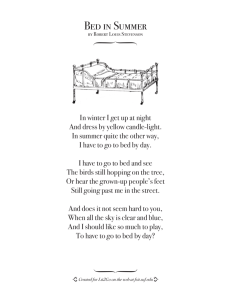21L.315, Prizewinners Prof. Mary Fuller Beowulf
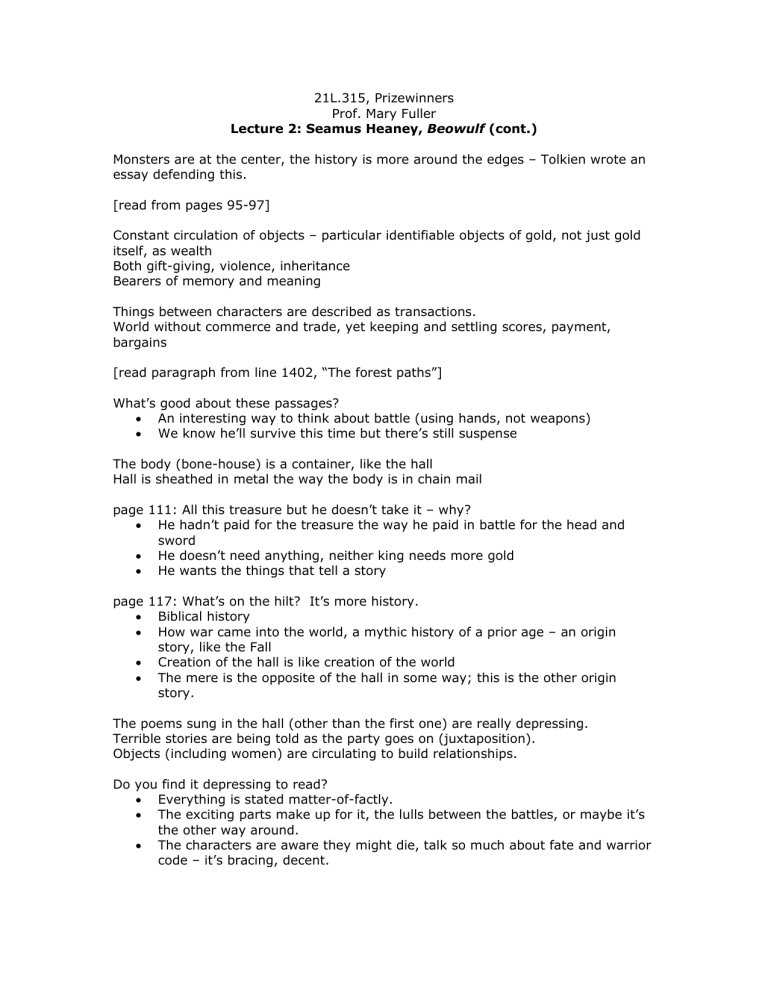
21L.315, Prizewinners
Prof. Mary Fuller
Lecture 2: Seamus Heaney, Beowulf (cont.)
Monsters are at the center, the history is more around the edges – Tolkien wrote an essay defending this.
[read from pages 95-97]
Constant circulation of objects – particular identifiable objects of gold, not just gold itself, as wealth
Both gift-giving, violence, inheritance
Bearers of memory and meaning
Things between characters are described as transactions.
World without commerce and trade, yet keeping and settling scores, payment, bargains
[read paragraph from line 1402, “The forest paths”]
What’s good about these passages?
• An interesting way to think about battle (using hands, not weapons)
• We know he’ll survive this time but there’s still suspense
The body (bone-house) is a container, like the hall
Hall is sheathed in metal the way the body is in chain mail page 111: All this treasure but he doesn’t take it – why?
• He hadn’t paid for the treasure the way he paid in battle for the head and sword
• He doesn’t need anything, neither king needs more gold
• He wants the things that tell a story page 117: What’s on the hilt? It’s more history.
• Biblical history
• How war came into the world, a mythic history of a prior age – an origin story, like the Fall
• Creation of the hall is like creation of the world
• The mere is the opposite of the hall in some way; this is the other origin story.
The poems sung in the hall (other than the first one) are really depressing.
Terrible stories are being told as the party goes on (juxtaposition).
Objects (including women) are circulating to build relationships.
Do you find it depressing to read?
• Everything is stated matter-of-factly.
• The exciting parts make up for it, the lulls between the battles, or maybe it’s the other way around.
• The characters are aware they might die, talk so much about fate and warrior code – it’s bracing, decent.
• But what do the other translations sound like? To mourn is a luxury, it’s a very practical voice, no-nonsense. It’s hard to tell if that’s from the original voice or Heaney’s. Life goes on despite death and hardship.
Introduction
His first poem (Digging) is already Anglo-Saxon in some ways.
English is in some way an imposed second language for him – cut off from earlier generations, embodying a whole history.
Heirloom words (angry about dispossession) remind you of everything else taken away
Later: no longer binary thinking about language, can inhabit this middle ground.
Words traded back and forth, carrying a history – it’s like the treasures in the poem itself.
Certain Irish words were incorporated into English – he has an identity within English now.
Words that allow you to reach back into the past, and reach out globally
Passage about pitch and tuning fork – he picked a speech it should sound like.
Their persona is matter-of-fact, connecting to why Beowulf isn’t depressing to read. page 28, “living inside a constantly indicative mood” – not conditional, just what is.
Settle Bed
“ear shuttered up / yet I hear…” What happens here?
From heavy accents of the first few lines to something more flowing and lyrical, lines flowing into the next
Even something as awkward as this bed, flowing into the next generation
Or other voices (besides his ancestors’) that he could take, less constricting
Countercurrent – unwilling, not willed down
“yet willable forward” – what does this mean?
The heavy history is something he can carry forward, and add to.
The act of imagining opens up possibilities.
What’s happened to the indicative mood? No longer in it, imagining and conditional.
His own life: he’s distanced himself from his heritage (at least geographically) but it’s still the ground underneath him.
This is both a bed and a bench, easily changing from one to the other.
One last “kenning” in the last stanza, connecting what had come before to what is re-imagined.
21L.315, Prizewinners
Prof. Mary Fuller
Lecture 2
Page 2 of 2
